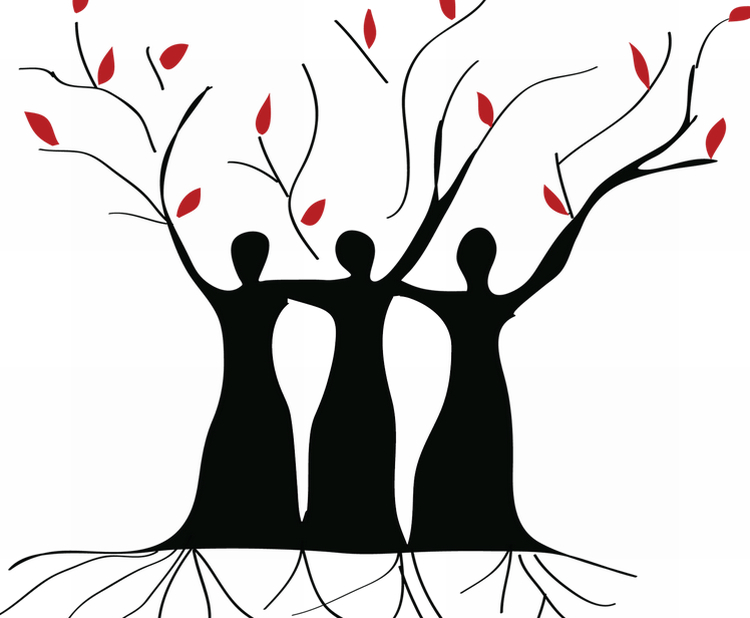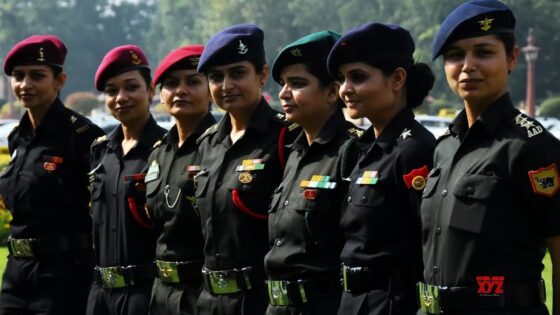In the strife-torn region of Kashmir, women have always been at the receiving end in the world of entrepreneurship. Ambreen Yousuf highlights the struggles and the challenges.
Introduction
Gender inequality and discrimination is a persistent problem, deeply embedded in our society, and often stems from our socio-cultural and religious norms. These problems have left very limited opportunities for women historically. Women are traditionally considered weak, emotional, and intellectually inferior. And their care-giving roles are more emphasized by society. The amount of work they do most of the times remains underpaid and informal – their work is mostly associated with family needs like cooking, washing, cleaning and farming etc. Therefore, she gets minimal acknowledgements.
Wealth creation and value addition can be one of the effective ways of furthering the fifth goal of Sustainable Development Goals or SDG 5. i.e. Gender Equality. According to Nancy Bertaux and Elaine Crable, entrepreneurship often gives women the flexibility to handle their domestic responsibilities at home, while also providing financial support to their families. This is an important avenue to strive for equality while balancing traditional care-giving roles too.
Earlier, women empowerment was limited to welfare schemes and efforts only on part of the government. However, it is time to reimagine the path for empowering women, considering wealth creation as an option to help them be self-sufficient and employment-generators rather than employment-seekers. Wealth creation through entrepreneurship can help women balance both the caregiving and domestic responsibilities – a more feasible way of transitioning to become financially independent.
Financial independence enables female folks to be more effective decision-makers in their homes and communities. In today’s world, there are deliberations to empower women by bringing them into decision-making processes, entrepreneurship in that context, remains one of the most powerful tools that can be used to facilitate the process.
Context and Scope of Women’s Entrepreneurship in India
Women account for approximately half of the world population. Start-up India data shows only 13.76 percent of women participation as entrepreneurs in the country. However, in the last few years, the rate of participation of women in industries and businesses has gone up relatively. Recently, it has been observed that governmental and autonomous institutions are coming up with women-centric policies and employment schemes, guaranteeing a wide range of opportunities for women entrepreneurs. For instance, Entrepreneurial Development Institute of India (EDII), an autonomous institute, equips women entrepreneurs for self-reliance. The government has also adopted different strategies for employing women in business generation activities. In this way, the female-led enterprise has gained momentum in present times. Entrepreneurship is not only a means but also the solution to end thousands of problems and challenges that women are facing in many developing countries.
In India, women are given vocational training for setting up small production and manufacturing units at individual levels through various government run schemes. Some private players also play a key role in providing livelihood to women.
Commendable efforts have been made by UN Women to support this new narrative for promoting women entrepreneurship on ground. UN Women has collaborated with civil society and Indian government to focus specifically on upliftment of disadvantaged groups amongst women like manual scavengers and women farmers to enable them to take up entrepreneurial initiatives with adequate support, knowledge, and resources.
Policies and Resource Support Interventions of the Government
The primary imperative for any kind of entrepreneurial initiative remains the investment capital support that an aspiring entrepreneur requires. For women who are generally disadvantaged in terms of access to financial resources, the government’s interventions to provide required financial help is praise-worthy. The current financial assistance intervention schemes in India are as under:
• Mudra Yojana of Pradhan Mantri MUDRA Scheme offers loans for small enterprises like beauty parlours, tailoring, and other ventures.
• TREAD (Trade Related Entrepreneurship Assistance and Development) provides credit and funding, training and counselling.
• Mahila Udyam Nidhi Scheme also provides financial support to small business ventures and is offered by the Small Industries Development Bank of India (SIDBI).
• Annapurna scheme supports women who have begun food and catering units. It offers financial assistance which includes the cost of purchasing essential items like utensils and water filters.
• Stree Shakti Package for Women Entrepreneurs is another financial package exclusively supporting women entrepreneurs. It is owned by SBI.
• Bhartiya Mahila Business Bank Loan is another financial scheme which is offering loans up to 20 crores for women business owners.
• Dena Shakti Scheme, Udyogini Scheme, and Cent Kalyani Scheme are some of the schemes offering financial assistance to budding women entrepreneurs particularly focussing on agriculture and farming.
Under Dena Shakti and Udyogini Schemes, women entrepreneurs can avail loans up to INR 20 lac. The Cent Kalyani scheme also offers loans up to Rs one crore. These schemes are not confined to agricultural businesses alone but also apply in the case of manufacturing units, retail stores, and other small enterprises.
Despite numerous schemes introduced by Government of India (GoI), the major challenge that women face is lack of awareness and accessibility to these schemes. There are various factors responsible for it, including illiteracy, marginalization, and communication gap with rural women. To overcome these challenges, governments at both central and state levels must ensure implementation of schemes and strategies to develop adequate linkages to facilitate the process.There is a pressing need to generate awareness for these schemes and availability of relevant information for the required beneficiaries. It can help end confusion and consequent hesitation by aspiring women entrepreneurs.
Needless to mention, only a few women have availed these schemes for want of wonder women in the world of entrepreneurship. Women from rural and urban areas face different set of challenges. Newly set startups are also facing huge problems of corruption as they attempt to avail benefits of government schemes. Mentorship and guidance can go a long way to facilitate sound business knowledge and knowhow to handle business operations.
In Kashmir’s vulnerable and rough terrains, security is always a key concern. So entrepreneurial risk taking within conflict circumstances remains low for a valid reason. Women prefer taking up employment in the government and banking sector or teaching profession, health-care, social work (not for profit), etc. Lack of self-confidence is another problem due to which many women are hesitant to start a business. Government institutes must mentor and encourage women to step into the entrepreneurial line with self-confidence and risk management skills.
Vocational training to support entrepreneurship efforts is attracting more women to consider entrepreneurship as a viable option. Some women across the valley have utilized their innovation, creativity, talent, and their potential by crossing the barriers to face the challenges. Coming from various backgrounds, they get enrolled in the training institutes for entrepreneurship activities.
In Kashmir, several females have joined government and autonomously-run institutes where they are getting vocational and basic training on business and production techniques. For instance, Entrepreneurship Development Institute of India (EDII) is working for the social and financial upliftment of women in the valley, Jammu and Kashmir Women’s Development Corporation (JKWDC) is a government institute run for the women’s development projects with special focus on the marginalized sections, Jammu and Kashmir Entrepreneurial Development Institute (JKEDI), a government-run organization is supporting the entrepreneurship schemes across the valley.
Women also get subsidized financial packages for running small business units. In 2018, 42 women from Kashmir received training for entrepreneurial ventures. The women were trained in agri-allied businesses, manufacturing, and service sectors under Seed Capital Fund and Youth Startup Loan schemes. Many among them chose to set up independent ventures like boutique’s, salon’s, manufacturing of woolen garments while some preferred departmental stores, travel agencies, customized printing, fine art galleries, manufacturing of bakery and confectionary, dairy farming and online food delivery ventures.
Therefore, women are becoming main catalysts in the process of economic transformation in Kashmir. Entrepreneurship Development Institute of India (EDII) helps in generating income by setting small enterprising units especially for women belonging to the weaker sections. EDII provides training, skill sharpening, facilitation, and skills on how to design and initiate entrepreneurship activities effectively. It also teaches various tools helping to start up self-business. EDII has many ongoing projects like ‘Skill to Succeed 2020 Goal’.
Issues, Challenges, and Outcomes
In Kashmir, being an entrepreneur is risky for women. Challenged by social barriers, women often receive less support and acceptance from their families for entrepreneurship as a life path chosen by them. Many consider females unfit for business and marketing activities. Thus, it forces many women to prefer other careers or jobs in private and government sectors. Some women coming from poor backgrounds are already battling with the financial constraints, underpinnings of which lie on various factors. For instance, women own/inherit very less or no property share. Secondly, the environment for the start-up business is sometimes unfriendly due to structural inequalities.
Entrepreneurship accelerates revenue generation besides generating employment. It leads to immense exposure of women, helping them to overcome their fears and economic constraints. The financial independence of women can reduce the financial burden of men, especially those who are single bread-earners in their families. The rate of youth unemployment is increasing day by day and in such situations, self-help ventures can be more beneficial and reliable.
There is a worldwide scope of indigenous products from Kashmir. Local handicrafts like paper-mache, walnut wood art/wood carving, carpets, shawls, hand embroidery (Tila, Zari, Ari, Sozni, and other thread works), are famous throughout the world, especially in Europe. Similarly, silk and pashmina,which are the trademark products of the valley, are exported to the different corners of the word.
Most recently, cultural entrepreneurship has marked a shift in the business. The amalgamation of cultural values into the business is an important tool providing vibrant business techniques. For example, Kashmiri Wazwan (cuisines), spices, tea, bread, etc. are finding huge markets in the country and abroad. According to the study by the World Economic Forum, ethnic diversity promotes the rate of success.
Many women have adopted online and social media as an effective tool for selling and advertising their products through which they can reach larger audience. These women are continuously fighting social barriers to find the means of better and quality life. Leadership and creativity discovered through an entrepreneurial journey can help build successful business ventures, provide lucrative jobs, and help in poverty alleviation and improve social progress. Working women earn experience and exposure, hence it helps in the personality development of women.
The financial stability secures the status of women, living standards, personal hygiene, and health. It also permits gender equality and fosters growth of the family and community. However, the rate of female entrepreneurs is still lagging in developing countries due to patriarchy and socially constructed taboos.
Financial independence will cut down all socially constructed barriers faced by women. However, women are still primary and easy targets for men in war zones. Women who are financially sound seem to be less targeted and victimized than the women who have financial dependence on their spouses or families.
Recommendations for Supporting Women’s Entrepreneurship
Due to political turmoil, Kashmir has witnessed major setbacks in the financial and economic sectors. Some recommendations to overcome these challenges in the present setting are as follows:
• The first and foremost step is fostering the rate of participation of female lead enterprises across the valley. This has to be followed by the skill training and education of women for self-employment and business management techniques. The government initiatives enable women entrepreneurs to enhance their creativity, innovativeness, risk-taking capability and autonomy.
• The traditional ideology and attitudes of people often discourage women from joining any sort of entrepreneurial ventures. The negative attitude must be restricted through education and awareness and necessary support should be provided to the families and to women to help them through the process of starting their own ventures.
• Many rural women lack clarity regarding funding and financial assistance schemes. The government must set up regional offices that would educate women about the available schemes and the ways of availing them.
• There should be a women’s networking group at the local and national level voicing different opinions. The common platform will also address issues and challenges that women entrepreneurs are facing as a barrier holding them back.
• The government must also ensure access to Internet or broadband services for rural women.
References:
https://www.greaterkashmir.com/news/opinion/women-entrepreneurs-meet-5-girls-running-their-own-business/
Sarfaraz Leyla, F. Nezameddin and Asad Majid Armaghan “The Relationship between women entrepreneurship and gender equality”https://journal-jger.





